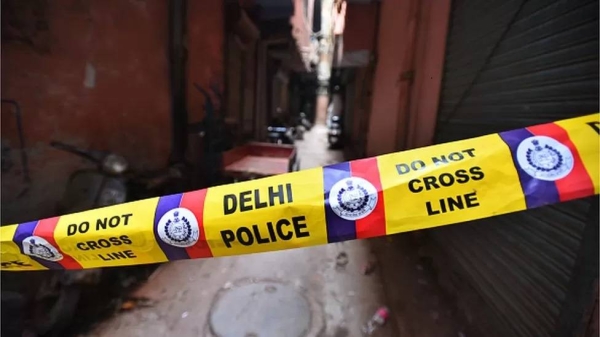
Last week, India"s government unveiled three new bills in parliament, stating that they would usher in a "significant transformation in our criminal justice system".
The bills are crafted to abolish and replace a trio of criminal laws. The Indian Penal Code and the Indian Evidence Act are antiquated colonial-era laws, while the Code of Criminal Procedure is half a century old. The bills have been referred to a parliamentary committee for further debate. Home Minister Amit Shah says their objective is to "deliver justice, not mere punishment".
India"s criminal justice system needs urgent reform: shoddy police investigations often result in catastrophic miscarriages of justice; jails overflow with undertrials and the slow moving courts are clogged with some 50 million cases.
Legal scholars say the bills do contain some significant changes covering a swathe of the justice system.
For one, they bring offenses like terrorism, corruption, mob lynching and organized crime under penal laws. They allow people to register a police complaint in any police station, regardless of the location where the crime took place. They propose video recording of search and seizure operations and increased use of electronic evidence and forensics during investigations. They introduce community service as a new form of punishment. They advocate speedier justice through video trials, and holding trials in the absence of the accused.
Yet, experts are skeptical about how some of these laws will work. Anup Surendranath, a professor of law at Delhi"s National Law University, says the manner in which the new offenses — acts endangering sovereignty, organized crime, mob lynching, terrorism, rape by false promise to marry — are drafted "continues to be so vague that it ends up giving the police unreasonably wide powers of arrest". "These vague provisions perpetuate the exercise of police powers in constitutionally unacceptable ways," he says.
For decades, successive governments have used India"s colonial-era draconian sedition law against students, journalists, intellectuals, social activists and those critical of authority. The government now claims that it has taken a "historic" decision by repealing the controversial law.
Not quite, say experts. The sedition law has been replaced by another in the new bill which punishes "acts endangering sovereignty, unity and integrity of India". In other words, experts say, this is really an expanded definition of sedition itself. "Sedition should have gone. It has been retained and perhaps also strengthened," says Naveed Mehmood Ahmad, a senior fellow at Vidhi Center for Legal Policy, a Delhi-based think-tank.
Experts point out that the bills overlook certain crucial aspects. Marital rape has not been criminalized despite India having tough laws to deter sexual violence against women. (The Supreme Court is also getting ready to start hearing petitions seeking its criminalization.) Offenses that criminalize speech — including sedition and obscenity — require reconsideration.
Then there"s semantics. Mrinal Satish, a professor of criminal law at the Bangalore-based National Law School of India University, suggests that the terminology of "modesty" employed in the code for the offense of "outraging the modesty of a woman" should be taken out. The bills should have also "revisited the offenses relating to religion and blasphemy, some of which are still very vague and ambiguous to even qualify as criminal provisions", according to Ahmad.
Some of the proposals appear to be fuzzy. Ahmad highlights a provision that mandates a minimum sentence of seven years in prison, life imprisonment, or even the death penalty for every individual within a mob — a gathering of five or more people — found guilty of committing murder based on considerations of race, caste, and community.
"I am not sure what is the most appropriate punishment in this case, but certainly not the death penalty. Imagine sentencing a mob of 50 people to death for murder," Ahmad says.
"Also, the bigger problem in these cases is the investigation, the evidence, and the manner in which the trial is conducted. I don"t know how useful it is to club this offense with murder when we know that there are social and political factors that may impact these cases. This may need a very different approach — for determining guilt, collecting evidence and investigation."
Experts agree that many of the provisions in the 163-year-old Indian Penal Code are embarrassingly outdated. There"s punishment for a thug, and the offense of obscenity is based on the ideas of Victorian morality. "Except removing the reference to thugs and punishment for it, the new bill retains other outdated parts and definitions. Seeking to change an existing law on the ground that it was enacted during the colonial period is not sufficient justification," says Prof Satish.
Moreover, there exist formidable institutional challenges, say experts. For instance, the bills propose that every crime scene must undergo forensic investigation. "But is India"s forensic system ready to handle that? Everyone knows it isn"t," says Prof Surendranath.
Most experts say the new bills "retain more than 80%" of the 160-year-old Indian Penal Code, drawn up by British historian Thomas Babington Macaulay. Also, the 50-year-old Code of Criminal Procedure, they say, has been updated and amended regularly, including as recently as 2018. "This is not an overhaul," says Prof Surendranath. "The majority of these bills retain exactly the same existing provisions under new names".
Experts say instead of repealing laws and dealing with the massive administrative challenges that would follow them, India could have just amended the existing laws. Countries like Singapore, Malaysia, Sri Lanka and Bhutan are still using the colonial penal code — Singapore recently made amendments to update it and introduce present-day requirements. India also changed and updated its law on sexual violence in 2013. "That would have been the way forward, not what the bills propose to do," says Prof Satish. — BBC












